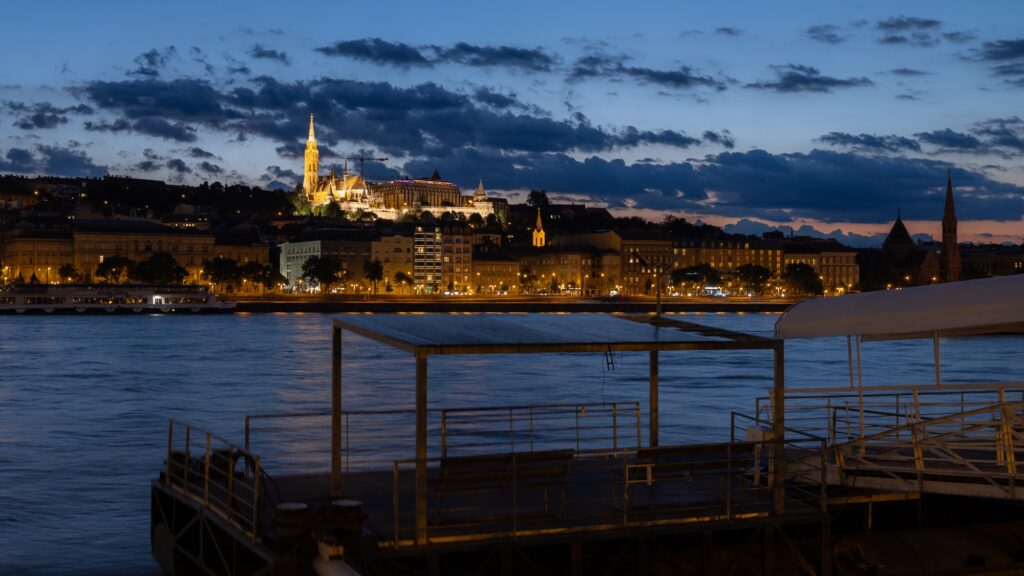After the lost First World War, the revolutions and Trianon, poverty was more or less an everyday phenomenon in the early twenties in Hungary, and people were particularly tormented by inflation and high utility costs, only worsened by a lack of heating materials.
Many sellers tried to be clever, and the collective term “price raisers” was used for those who wanted to get rich with illegal tricks in the food trade. This could refer to those who sold their rare products in the black market above the state-fixed prices; to those who hoarded the products until the prices rose and then put them on the market; and finally to the small-time fraudsters who sold less than the declared quantity of the food or watered down liquid products.
In the summer of 1920, the right-wing publication Szózat wrote about the phenomenon: ‘…the price raisers grab every opportunity of cheating the poor out of their income, clothes, happiness and hope with both hands. The prices are unbearable.’ The reporter had bought a kilogram of butter as a test, and it turned out to contain a quarter of a litre of water. When he complained to the market authorities, they replied indifferently: ‘then go file a report with the police!’[1]
‘The prices are unbearable’
Richard J. E. Humphreys, the British economic commissioner to Budapest, was shocked to report in the fall of 1920 that the price of soap had increased by 9400 per cent. According to the data of the Central Statistical Office in Hungary, during the year 1921, covering the weekly food need of an average working family– calculated for five people, that is, 82 thousand calories– cost approximately one thousand crowns (korona). (By comparison, the average weekly wage of non-agricultural workers was about 550 crowns at the end of 1920.) Meat products and eggs were also hit by price increases.[2]
The British ambassador to Hungary, Thomas Beaumont Hohler explained in a cable that the official prices read in the newspapers ‘do not exist in reality.’ According to his notes, in May 1921, a cheap suit cost 8,200 crowns, a jacket 8,500 (and not 3,200, as was reported in the papers). According to the list of the British embassy’s expenses, a kilo of beef cost 250 crowns, and a kilo of coal was 235. Humphreys’ hotel charged 750 crowns per day, while officially a hotel room in Budapest was priced art around 60 crowns. ‘The situation is becoming very threatening,’ Hohler concluded.[3]
In terms of social measures, the issue of heating material was important. In December 1919, the Ébredő Magyarok Egyesület (Association of Awakening Hungarians, a far-right group) managed to inject antisemitism into this issue as well: led by the priest and politician Gyula Zákány, they handed over a memorandum to Admiral Miklós Horthy, in which they demanded the immediate seizure by the authorities of the ‘coal and firewood’ that was ‘in the hands of the Jews’ so that it could be ‘redistributed to the destitute, cold, robbed Christian Hungarian society.’ In his reply, Horthy promised to ‘bring the matter before the government immediately’.[4]
‘The cheapest electricity and gas lighting in the whole world’
Budapest deputy mayor János Buzáth was a great exponent of the reduction of the fees of heating materials–coal and gas–as well as of the cost of water, sewage and public transport services. On one occasion, Károly Wolff, the leader of the Christian party in the capital, even proposed the reduction of ‘the unnaturally inflated utility costs.’ [5] In 1923, Wolff boasted to his supporters that the city of Budapest has ‘the cheapest electricity and gas lighting in the whole world’, but this was just rhetoric.[6]
In the autumn of 1921, heating with what was known as ‘garbage coal’ was still in vogue. Hand-picked by disabled people and war veterans at the Pestszentlőrinc garbage dump for example, this was a mixture of rags, paper, bones, glass, food, earth, and wood scraps, from which the garbage dump had an income of 30 million crowns in 1920 alone. During this year, 2-3 wagons of this cheap and inefficient heating material were sold per day.[7]
Although the utility bills rose sharply until the economy stabilized in the mid-twenties, in January 1921 the government, in a Prime Minister’s decree, cancelled the utility debts accumulated by associations during the 1919 Communist Republic of Councils.[8]
As we can see, inflation and the lack of heating materials tend to go hand-in-hand with war and crises, and it is interesting–and sad–to see that Hungary is now facing the very same issues as it struggled with a hundred years ago.
[1] Szózat, 31 July 1920.
[2] National Archives (London, hereinafter as NA), FO 371/6121, 19 Oct. 1920.
[3] NA, FO 371/6121, 11 May 1921.
[4] Nemzeti Újság, 2 Dec. 1919.
[5] Fővárosi Közlöny, 23 Sept.1921, p. 1613.
[6] ‘Wolff Károlyt miniszterelnökké kiáltják ki Csilléry beszámolóján,’ (Dec. 1923,) Huszadik Század, http://www.huszadikszazad.hu/1923-december/politika/wolff-karolyt-miniszterelnokke-kialtottak-ki-csillery-beszamolojan, accessed 18 July 2022.
[7] Új Budapest, 1921/39.
[8] Belügyi Közlöny, 13 Jan. 1921, p. 92.








